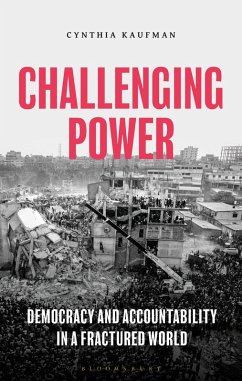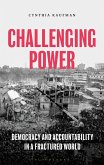Arguing that we only have democracy when systems of power are held to account, Kaufman examines the real work being done to challenge the operations of power that underlie four unruly social problems: climate change, sweatshop labour, police abuse, and economic deprivation.
In Challenging Power, Kaufman pairs each of these issues with an operation of power -- the large scale influence of multinational corporations; the power of governments; the authority of financial markets; and the control inherent in systems of meaning -- and using case studies like the Rana Plaza disaster in Bangladesh and the killing of Eric Garner, forcefully demonstrates what is involved in challenging these operations of power.
Advancing a positive message, Kaufman maintains that these networks are not omnipotent and can be challenged if we develop 'mechanisms of accountability' which allow us to conceptualise the nature of these problems and the actions required to resist them. Kaufman provides then, a model for ethical action that allows us to investigate and appreciate our own connections to the powerful forces that control our world.
In Challenging Power, Kaufman pairs each of these issues with an operation of power -- the large scale influence of multinational corporations; the power of governments; the authority of financial markets; and the control inherent in systems of meaning -- and using case studies like the Rana Plaza disaster in Bangladesh and the killing of Eric Garner, forcefully demonstrates what is involved in challenging these operations of power.
Advancing a positive message, Kaufman maintains that these networks are not omnipotent and can be challenged if we develop 'mechanisms of accountability' which allow us to conceptualise the nature of these problems and the actions required to resist them. Kaufman provides then, a model for ethical action that allows us to investigate and appreciate our own connections to the powerful forces that control our world.









